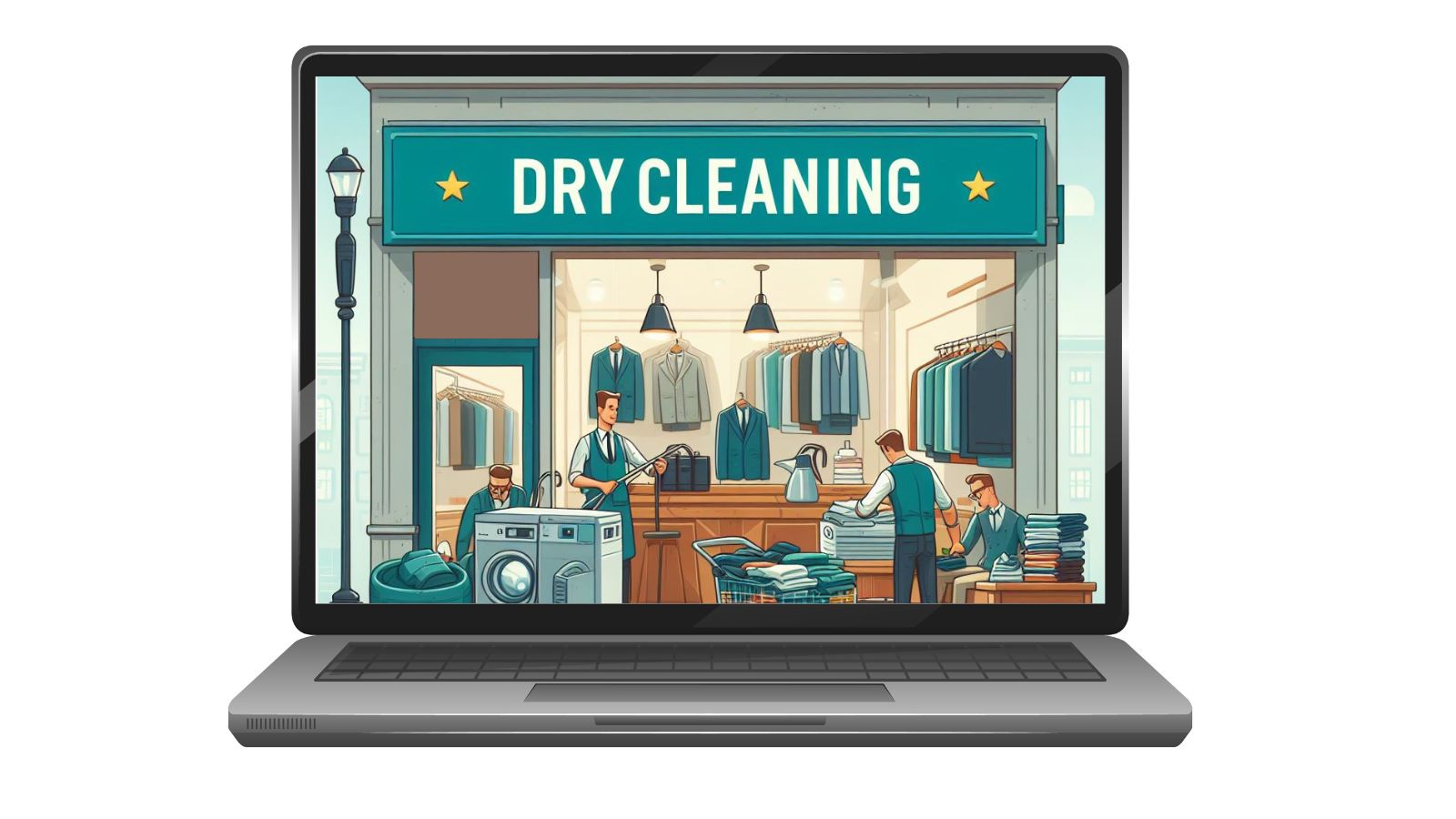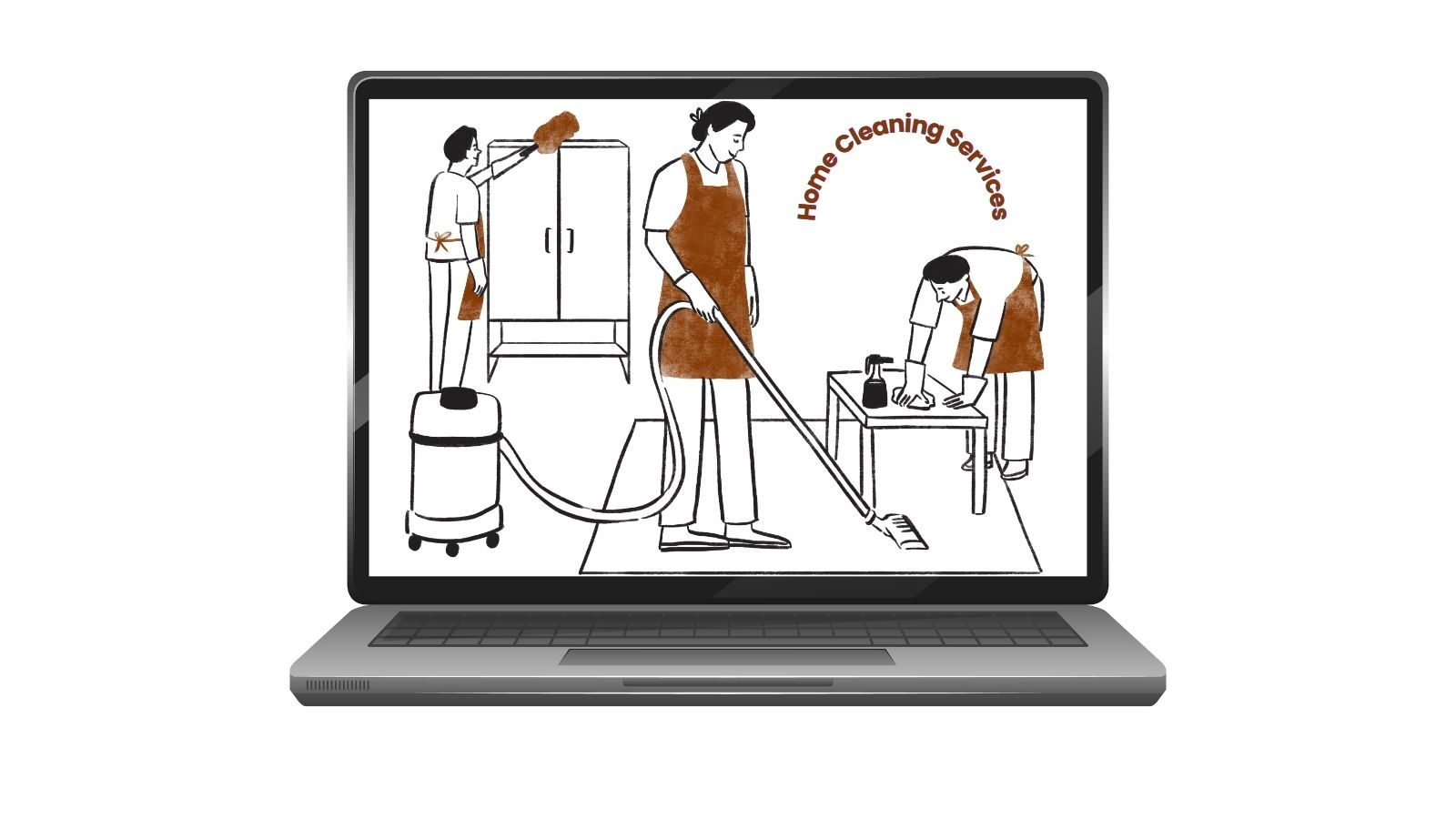
Dry Cleaning website design plays a pivotal role in establishing a strong online presence for businesses in the garment care industry. As consumers increasingly turn to the internet to find services, a well-crafted website becomes a crucial asset for dry cleaning businesses looking to attract and retain customers. In this digital age, the question of 'How much does dry cleaning website design cost?' becomes pertinent for dry cleaning shop owners looking to invest wisely in their online identity. In this blog post, we will discuss the importance of a visually appealing dry cleaning website, the types of dry cleaning websites, key features of a dry cleaning website, factors that affect the cost of designing a dry cleaning website, and cost to develop a dry cleaning website. “The global dry cleaning and laundry industry is expected to grow from $93 billion in 2020 to $127 billion by 2025.” (Source: Research and Markets - Market Research Reports) A well-designed dry cleaning website serves as a virtual storefront, fostering seamless interaction between businesses and customers. Emphasizing user-friendly navigation, visually appealing layouts, and responsive design enhances online presence, aiding in customer attraction and retention. The website should showcase services and pricing details, incorporating features like online scheduling and payment options. This strategic design not only builds trust but also establishes credibility in the competitive world of dry cleaning services. There are various types of dry cleaning websites catering to different aspects of the dry cleaning industry. Here are some common types: Websites for individual or local dry cleaning businesses. These sites typically provide information about their services, pricing, location, and contact details. Platforms that connect customers with multiple dry cleaners in their area. Users can schedule pickups, track orders, and make payments online. Apps that allow users to request dry cleaning services using their smartphones. These apps often offer features like order tracking, notifications, and digital payments. Websites that allow users to browse and select dry cleaning services online. Customers can choose specific services, provide instructions, and make payments through the website. Websites that offer subscription-based models for regular dry cleaning services. Customers can sign up for recurring services and enjoy the convenience of scheduled pickups and deliveries. Websites that aggregate dry cleaning service providers, allowing users to compare prices, read reviews, and choose the best option based on their preferences. Websites that provide information about dry cleaning processes, fabric care tips, and stain removal techniques. These sites may also feature blog posts, articles, and guides related to garment care. Websites of dry cleaners that specialize in Eco-friendly or green dry cleaning methods. These sites may highlight their commitment to using environmentally safe cleaning processes. Websites catering specifically to corporate clients, offering bulk dry cleaning services for uniforms, employee garments, and other business-related attire. Websites that allow users to review and rate different dry cleaning services. These platforms can help customers make informed decisions based on the experiences of others. Websites providing resources, training materials, and educational content for dry cleaning professionals. This may include updates on industry standards, new technologies, and best practices. These types of websites cater to the diverse needs of both consumers and dry cleaning businesses in the digital age. Creating an effective dry cleaning website involves incorporating essential features that enhance user experience, streamline operations, and provide valuable information. Here are some essential features for a dry cleaning website: Ensure a clean and intuitive design with easy navigation to help users find information and services effortlessly. Clearly display information about the types of services offered, including dry cleaning, laundry, alterations, and any specialty services. Provide transparent pricing for different services and packages. A pricing page or an online calculator can help users estimate costs. Implement an easy-to-use booking system that allows users to schedule pickups, deliveries, or appointments online. Offer user accounts where customers can manage their orders, view order history, and track the status of their items. Integrate a secure online payment system to facilitate easy and safe transactions. This is crucial for online payments and subscriptions. Provide real-time tracking for pickup and delivery services so customers can monitor the status of their orders. Clearly display contact details, including phone numbers, email addresses, and a physical address. Consider implementing a chat feature for quick inquiries. Include a frequently asked questions (FAQ) section to address common queries about services, pricing, and policies. Share informative content related to garment care, stain removal tips, and other relevant topics to engage and educate customers. Highlight any ongoing promotions, discounts, or loyalty programs to incentivize repeat business. Integrate social media buttons and feeds to encourage users to follow the business on platforms like Instagram, Facebook, or Twitter. Display customer reviews and testimonials to build trust and credibility. Consider integrating third-party review platforms or implementing a review section on the website. Implement security features to protect customer information, especially for online transactions and account management. Offer multiple channels for customer support, such as live chat, email, or phone, to address any issues or concerns promptly. Allow users to choose their preferred language and set their location for accurate service availability and pricing. By incorporating these essential features, a dry cleaning website can enhance user satisfaction, build trust, and streamline the overall customer experience. The cost of designing a dry cleaning website can vary based on several factors. Here are key factors that influence the cost of dry cleaning website design: The complexity of the website design, including the layout, graphics, and overall visual appeal, will impact the cost. A more intricate and customized design may require more time and resources. The inclusion of specific features such as online booking, scheduling, payment processing, order tracking, and other advanced functionalities will contribute to the overall cost. More features often mean higher development costs. A responsive design that ensures optimal viewing on various devices, including desktops, tablets, and smartphones, may incur additional costs due to the need for careful coding and testing across multiple platforms. If the website includes an e-commerce component for selling products or services online, the complexity of the e-commerce system and integration with payment gateways will influence the cost. The choice of CMS (e.g., WordPress, Drupal) can impact costs. Some CMS platforms may have higher development and maintenance costs due to their complexity and specific requirements. The level of customization and branding requirements for the dry cleaning website will affect costs. Custom-designed elements, unique graphics, and brand-specific features may increase the overall expense. If the website needs to integrate with third-party services such as payment gateways, delivery tracking systems, or other APIs, the complexity of integration can impact costs. The implementation of robust security measures to protect user data and financial transactions may increase development costs. Security features are crucial, especially for websites handling online payments. The total number of pages on the website influences the cost. A larger website with more pages and content may require additional design and development effort. If the website needs to support multiple languages, the implementation of multilingual features may add to the complexity and cost of development. Thorough testing and quality assurance are essential for a smooth and error-free website. The complexity of testing processes and the extent of quality assurance measures can impact costs. The timeline for website development can affect costs. If there's a need for expedited delivery or tight deadlines, additional resources may be required, potentially increasing the overall website cost. Consideration of ongoing maintenance and support services after the website launch may also contribute to the overall cost. Regular updates, security patches, and technical support are essential for the longevity of the website. It's important to discuss these key factors with a dry cleaning website design company to get a detailed estimate tailored to the specific requirements of the dry cleaning website design and development project. The average cost for designing a website for a dry cleaning business can vary based on several factors, including the complexity of the site, the features required, and the level of customization. It's important to note that these are average estimates, and actual costs can vary based on your specific dry cleaning website requirements. The cost of designing a dry cleaning website varies based on multiple factors. To make an informed decision, assess your business requirements, consider the desired features, and evaluate your budget constraints. Remember that a well-designed website is an investment that pays off through increased visibility, customer engagement, and ultimately, business growth. Ready to elevate your dry cleaning business to new heights? Contact us or email us at sales@iihglobal.com for affordable dry cleaning web design services.Introduction To Dry Cleaning Website Design
Types of Dry Cleaning Websites
1) Local Dry Cleaners' Websites:
2) Online Dry Cleaning Platforms:
3) Mobile Apps for Dry Cleaning:
4) E-commerce Dry Cleaning Websites:
5) Subscription-Based Dry Cleaning Services:
6) Dry Cleaning Aggregators:
7) Dry Cleaning Blogs and Informational Websites:
8) Environmental-Friendly Dry Cleaning Websites:
9) Corporate Dry Cleaning Services:
10) Review and Rating Websites:
11) Educational Platforms for Dry Cleaners:
Essential Features For Dry Cleaning Websites
(1) User-Friendly Interface:
(2) Service Details:
(3) Pricing Information:
(4) Online Booking and Scheduling:
(5) User Accounts:
(6) Secure Payment Gateway:
(7) Pickup and Delivery Tracking:
(8) Contact Information:
(9) FAQ Section:
(10) Blog or Resources Section:
(11) Special Offers and Promotions:
(12) Social Media Integration:
(13) Reviews and Testimonials:
(14) Security Measures:
(15) Responsive Customer Support:
(16) Language and Location Preferences:
Factors Influencing The Cost Of Dry Cleaning Website Design
1) Complexity of Design:
2) Functionality and Features:
3) Responsive Design:
4) E-commerce Capabilities:
5) Content Management System (CMS):
6) Customization and Branding:
7) Integration with Third-Party Services:
8) Security Measures:
9) Number of Pages:
10) Multilingual Support:
11) Testing and Quality Assurance:
12) Timeline and Urgency:
13) Maintenance and Support:
The Average Dry Cleaning Website Design Costs
1. Basic Dry Cleaning Website Design:
2. Standard Dry Cleaning Website Design:
3. Custom Dry Cleaning Website Design:
4. E-commerce Integration:
5. Maintenance and Updates:
Conclusion
Schedule a call with us to get a custom dry cleaning website design cost estimate tailored to your unique business needs.








